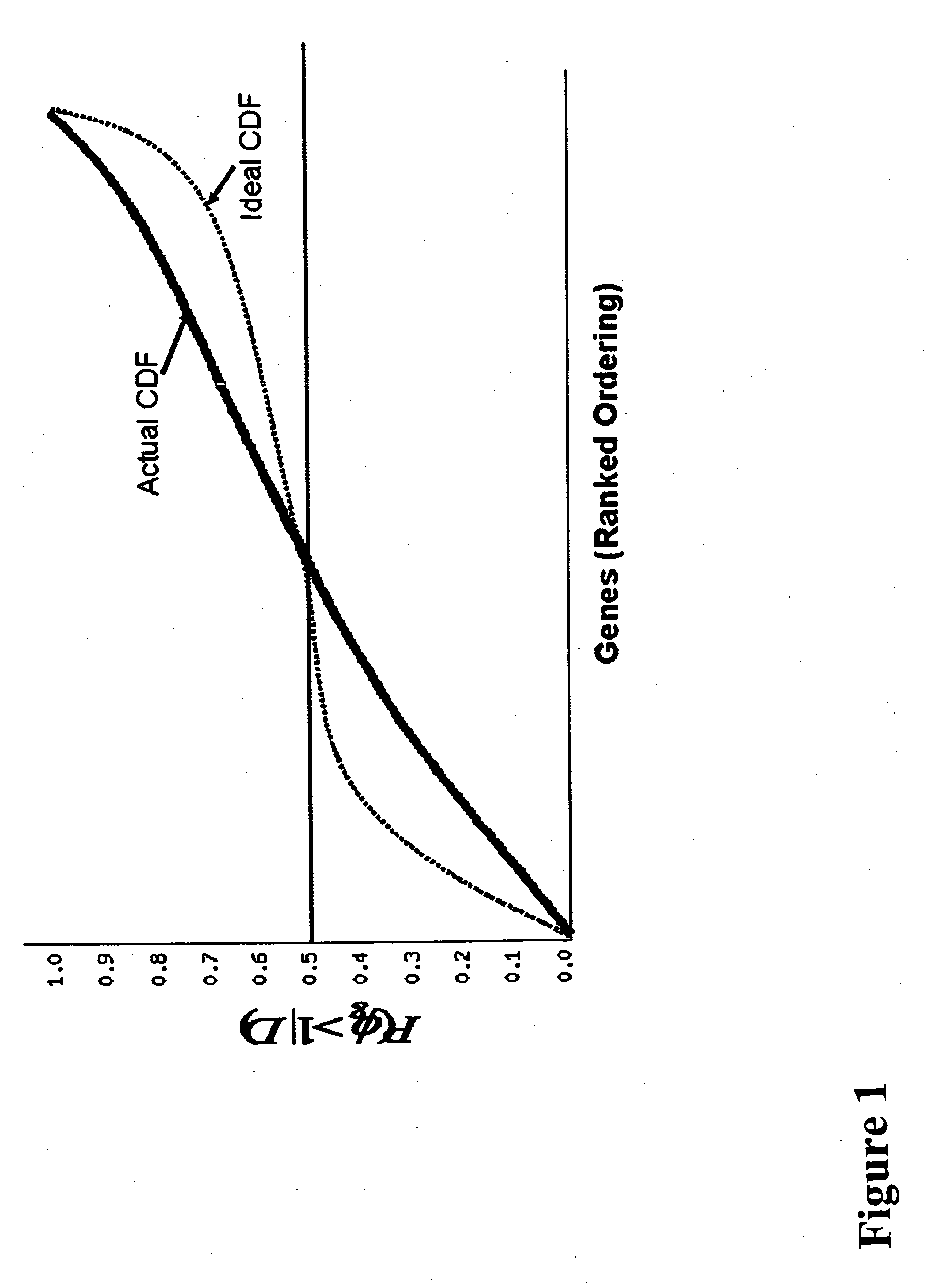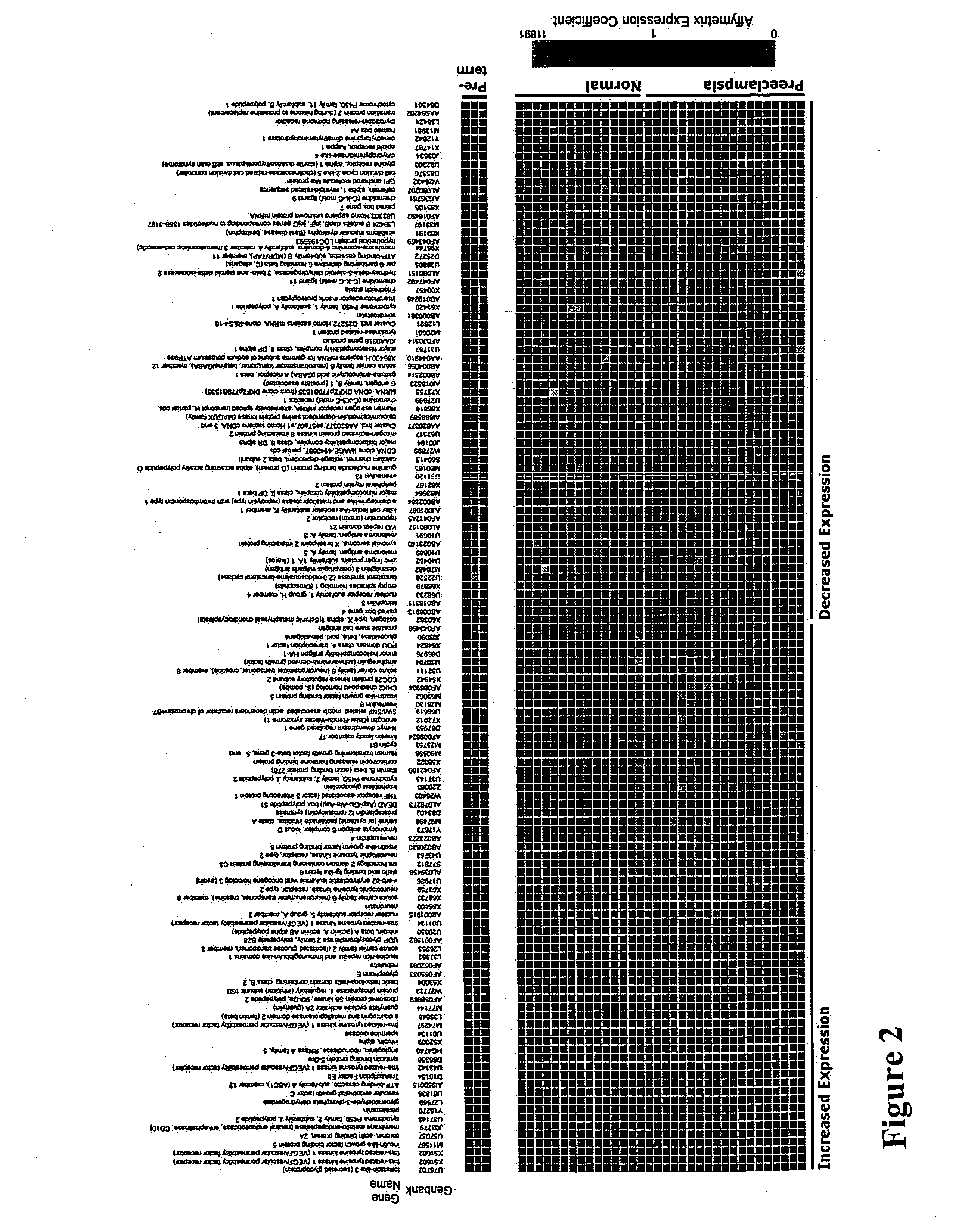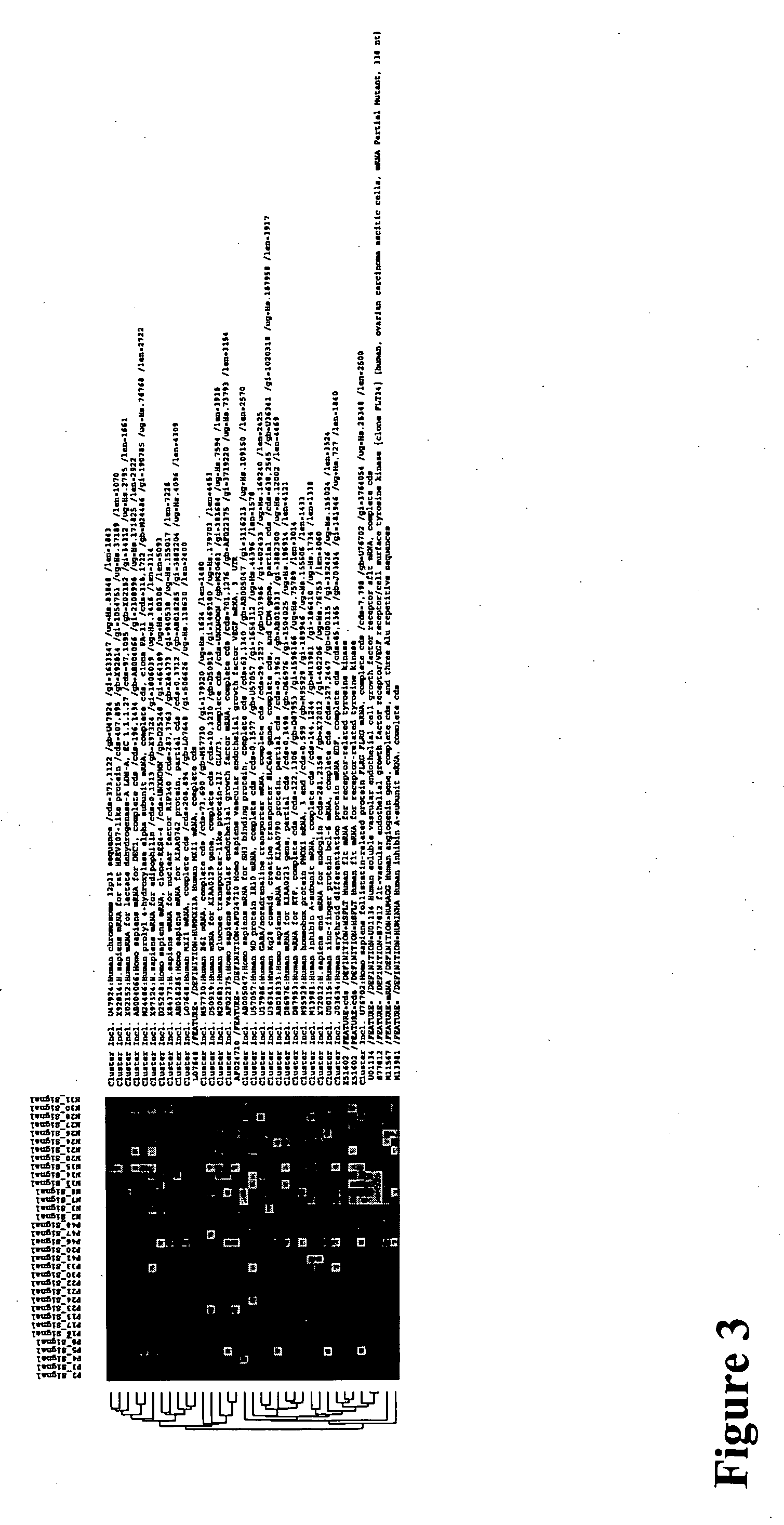Nucleic acids and polypeptides useful for diagnosing and treating complications of pregnancy
a technology applied in the field of nucleic acids and polypeptides useful for diagnosing and treating pregnancy complications, can solve the problems of ineffective monitoring methods, no known cure for pre-eclampsia, and substantial maternal and fetal morbidity and mortality, so as to save maternal and fetal lives, prevent premature delivery, and effectively diagnose pregnancy complications
- Summary
- Abstract
- Description
- Claims
- Application Information
AI Technical Summary
Benefits of technology
Problems solved by technology
Method used
Image
Examples
example 1
Gene Expression Profiling of Placental Tissue from Pre-Eclamptic and Normotensive Women
[0271] In order to identify novel secreted factors involved in the pathogenesis of pre-eclampsia, we performed gene expression profiling of placental tissue from 19 women with pre-eclampsia and 15 nomotensive pregnant women using Affymetrix U95A microarray chips (see Table 1).
TABLE 1Clinical characteristics of the study patientsNormal (n = 15)Pre-eclampsia (n = 19)Maternal Age (years)35.2 31.9Gestational Age (wks)39.0 31.1*Primiparous (%)19 81*Systolic BP (mm Hg)107167.2**Diastolic BP (mm Hg)83101.8**Proteinuria (g protein / g creat) 5.2**Serum Uric Acid (mg / dl)NA 6.8Hematocrit (%)35.7 33.9Platelet Count (K / μl)217198Serum Creatinine (mg / dl)0.5 0.6
Data shown are mean values.
*p < 0.05,
**p < 0.005
[0272] Data were analyzed using the computer program BADGE (Bayesian Analysis of Differential Gene Expression version 1.0) (http: / / genomethods.org / badge) (see Ramoni and Sebastiani, in Berthold and Hand ...
example 2
mRNA Expression of Flt-1 and sFlt-1 in Pre-Eclampsia
[0276] As the above cluster identified sFlt1 along with other genes confirmed in the literature, we chose to confirm the ability of the array to identify predictive markers of pre-eclampsia using sFlt-1. For these experiments, mRNA expression of placental sFlt-1 from 3 patients with pre-eclampsia (P1, P2, P3) and three normotensive term pregnancies (N1, N2, N3) were determined by northern blot analysis (FIG. 4). The higher band (7.5 kb) is the full length Flt-1 mRNA and the lower, more abundant band (3.4 kb) is the alternatively spliced sFlt-1 mRNA. Actin is included as a control and 28S is shown as arrowhead. These results show the increased expression of the gene for sFlt-1 in pre-eclamptic patients and confirm the use of the predictive gene set identified by the array as markers for pre-eclampsia or eclampsia or the propensity to develop pre-eclampsia or eclampsia.
example 3
Immunohistochemistry Analysis of Flt-1 Expression in Normal and Pre-Eclamptic Patients
[0277] In order to visualize Flt-1 expression in placental samples from normal and pre-eclamptic patients, a monoclonal antibody against human Flt-1 was used for immunohistochemistry analysis. Increased expression of Flt-1 by the syncitiotrophoblasts of the preeclamptic placenta was detected (FIG. 5), further confirming the ability of the array to identify genes that can be used as markers for pre-eclampsia or eclampsia or the propensity to develop pre-eclampsia or eclampsia.
PUM
| Property | Measurement | Unit |
|---|---|---|
| temperatures | aaaaa | aaaaa |
| temperatures | aaaaa | aaaaa |
| temperatures | aaaaa | aaaaa |
Abstract
Description
Claims
Application Information
 Login to View More
Login to View More - R&D
- Intellectual Property
- Life Sciences
- Materials
- Tech Scout
- Unparalleled Data Quality
- Higher Quality Content
- 60% Fewer Hallucinations
Browse by: Latest US Patents, China's latest patents, Technical Efficacy Thesaurus, Application Domain, Technology Topic, Popular Technical Reports.
© 2025 PatSnap. All rights reserved.Legal|Privacy policy|Modern Slavery Act Transparency Statement|Sitemap|About US| Contact US: help@patsnap.com



